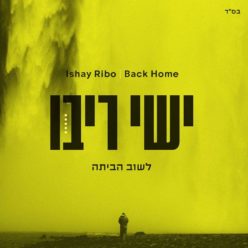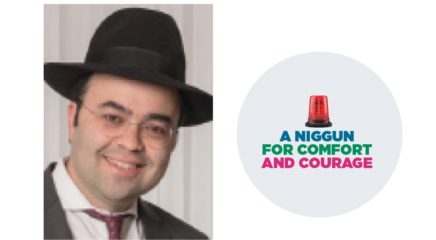"The entire song, the tune, the lyrics, Mona Rosenblum’s arrangement, expressed the feelings of a lot of unsure and frustrated people"

BENTZI MARCUS
Composer, 8th Day
Right now, it’s probably “Hinei Yamim Ba’im,” by Ishay Ribo. The rhythm and the lyrics are brimming with a yearning and eagerness to get to those “days that are coming.”
MENACHEM HERMAN
Musician, band leader
My pick is “Lashuv Habaitah” by Ishay Ribo. This song is special, because it tells the simple truth that Hashem is always waiting to forgive us and take us back. Any time you think Hashem has closed a door for you, this song will re-awaken your awareness that Hashem is always available to accept us.
In free English translation: The time has come to wake up /To leave everything, to overcome /To return home/ Not to search for any other place. The time has come to change/ Even if we’ve missed a few stops / You can get off/There’s a train going back to the neighborhood
(Chorus) Even if we’ve done something wrong / He forgives and pardons, He forgives and pardons / He stretches out His hand to assist, and in His mercy gives / The strength to fix, and return to Him
The simplicity of the music and the simple beat seem to just massage the message into our hearts and minds.
JOEY NEWCOMB
Composer and singer
“Atah Kadosh” by Adi Ran. Besides for the tune being beautiful, the words really speak to me. I heard it for the first time sung live in Chevron on Chol Hamoed Succos. Hundreds of Jews singing the high part together — “Ki Atah kadosh, veshimcha kadosh...” — had a very powerful effect on me.
SHLOMO KATZ
Singer, songwriter and musician
I love Eviatar Banai’s contemplative “Ad Ha’ahavah,” which he released as a single in April 2018 — it’s a profound, honest ballad of teshuvah.
YITZY BERRY
Composer, producer and arranger
I love the song “Ad Matai,” which MBD sang on his We Are One (Lulay Sorascha) album in 1999. Mordechai has long picked up on current events and reflected contemporary Jewish issues in his music, such as the 1980s “Yerushalayim Is Not for Sale” and “Let My People Go,” but this was the first time that I remember him doing so in Hebrew.
The lyrics, by writer Chaim Walder, reflected what the chareidim in Eretz Yisrael were facing at that time, when Tommy Lapid and his anti-religious Shinui party won so many seats in the Knesset and threatened Yiddishkeit in Eretz Yisrael. You can hear Mordechai’s cry of protest and prayer in the song, which uses the names of Lapid and his crony, Yossi Sarid. “Lapid shel eish yotzei ...soreif umav’ir...” and speaks about the threatening waves of evil. The entire song, the tune, the lyrics, Mona Rosenblum’s arrangement, expressed the feelings of a lot of unsure and frustrated people.
BORUCH SHOLOM BLESOFSKY
Composer and singer
“Sibat Hasibot,” by Ishay Ribo. This is a song that raises the bar of music composition and production. The first time I heard it, I was able to internalize the saying of Chazal that “kinas sofrim tarbeh chochmah (jealousy among scholars increases wisdom),” with reference to my own songwriting.
(Originally featured in Mishpacha, Issue 866)






